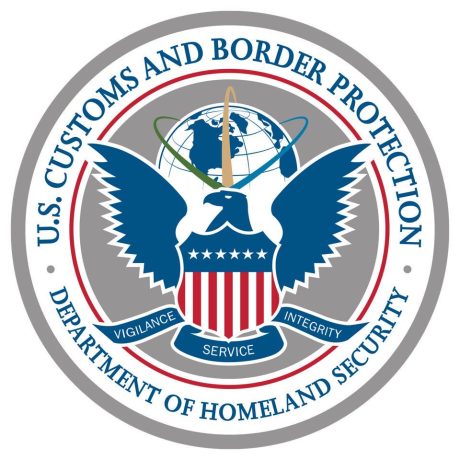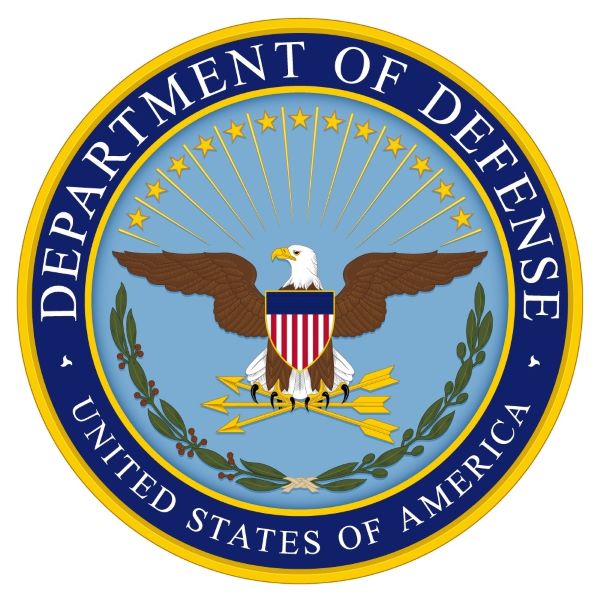WASHINGTON — U.S. Customs and Border Protection (CBP) has released operational statistics for February 2024. CBP monthly reporting can be viewed on CBP’s Stats and Summaries webpage.
“CBP continues to work with our foreign and domestic partners to enhance enforcement efforts: aggressively targeting unscrupulous human smugglers, and swiftly applying consequences against those who cross the border illegally and have no legal basis to remain in the United States,” said Troy A. Miller, Senior Official Performing the Duties of the Commissioner. “Despite the challenges we are facing along the southwest border, as well as the positive trends of increasing levels of trade and travel, CBP continues to surge enforcement to stop dangerous drugs from entering the country; our agents and officers interdicted 294% more methamphetamine, 164% more heroin, and 140% more cocaine in February than January. It is essential that we provide our personnel with the resources they need to continue to expand this critical work.”
CBP continues to work closely with U.S. Immigration and Customs Enforcement and U.S. Citizenship and Immigration Services to quickly process individuals encountered at the border and remove those who do not establish a legal basis to remain in the United States, utilizing consequences strengthened by the Circumvention of Lawful Pathways rule. Since May 12, 2023 and through February 29, 2024, DHS has removed or returned over 593,000 individuals, the vast majority of whom crossed the southwest border, including more than 93,000 individual family members. Total removals and returns since mid-May exceed removals and returns in every full fiscal year since 2012. The majority of all individuals encountered at the southwest border since January 2021 have been removed, returned, or expelled.
Below are key operational statistics for CBP’s primary mission areas in February 2024. View all CBP statistics online.
Ensuring Border Security and Managing Migration
CBP continues to expeditiously process and remove individuals who do not have a legal basis to remain in the country. We are working together with our domestic and foreign partners to jointly disrupt migration across the region, offering lawful pathways and taking action against ruthless smugglers who continue to spread falsehoods and show disregard for the safety and well-being of vulnerable migrants. We are also working alongside U.S. government partners to target transnational criminal organizations and smugglers who take advantage of and profit from migrants and taking new measures to stop individuals from exploiting traditional travel methods for migration.
In February 2024, the U.S. Border Patrol recorded 140,644 encounters between ports of entry along the southwest border.
CBP’s total encounters along the southwest border in February 2024 were 189,922. Total encounters include U.S. Border Patrol encounters between ports of entry, as well as individuals who presented themselves at ports of entry (including those with CBP One™ appointments, detailed further below).
CBP continually analyzes and responds to changes in migration patterns, particularly irregular migration outside of lawful pathways and border crossings. We work with our federal and international partners to combat human smuggling. The fact remains: the United States continues to enforce immigration law, and our borders are not open for those without a legal basis to enter the country. Migrants attempting to enter without authorization are subject to removal under Title 8 authorities.
The U.S. Border Patrol has undertaken significant efforts in recent years to expand capacity to aid and rescue individuals in distress. To prevent the loss of life, CBP initiated a Missing Migrant Program in 2017 that locates noncitizens reported missing, rescues individuals in distress, and reunifies decedents’ remains with their families in the border region. In February, the U.S. Border Patrol conducted 434 rescues, totaling 2,048 rescues in FY 2024. This was the highest monthly rescues total since October.
View more migration statistics and rescues statistics.
CBP One App
The CBP One mobile application remains a key component of DHS’s efforts to incentivize noncitizens to use lawful, safe, humane, and orderly pathways. Generally, noncitizens who cross between the ports of entry or who present themselves at a port of entry without making a CBP One appointment are subject to the Circumvention of Lawful Pathways rule. This rule presumes asylum ineligibility for those who fail to use lawful processes, with certain exceptions. DHS encourages migrants to utilize such pathways, rather than having migrants take the dangerous journey to cross unlawfully between the ports of entry, which also carries consequences under Title 8.
The CBP One app allows noncitizens throughout central or northern Mexico who lack documents sufficient for admission to the United States to schedule an appointment and remain in place until presenting at a preferred port of entry for their appointment, reducing migrants’ need to crowd into immediate border areas. Use of the CBP One app to schedule appointments at ports of entry has increased CBP’s capacity to process migrants more efficiently and orderly while cutting out unscrupulous smugglers who endanger and profit from vulnerable migrants.
In February, CBP processed more than 42,100 individuals through appointments at ports of entry utilizing advanced information submitted in CBP One. CBP One appointments accounted for 86% of noncitizens processed at ports of entry, demonstrating that noncitizens will follow an orderly process when one is available. Since the appointment scheduling function in CBP One was introduced in January 2023 through the end of February 2024, more than 501,000 individuals have successfully scheduled appointments to present at ports of entry using CBP One instead of risking their lives in the hands of smugglers. The top nationalities who have been processed are Haitian, Mexican, and Venezuelan.
A percentage of daily available appointments are allocated to the earliest registered CBP One profiles, so noncitizens who have been trying to obtain appointments for the longest time will be prioritized. CBP is continually monitoring and evaluating the application to ensure its functionality and guard against bad actors.
CHNV Parole Processes
On January 5, 2023, DHS announced processes providing certain Cubans, Haitians, and Nicaraguans who have a supporter in the United States, undergo and clear robust security vetting, and meet other eligibility criteria, to come to the United States in a safe, orderly, and lawful way. These processes were built on the success of the process for Venezuelans; they are publicly available online, and DHS has been providing regular updates on their use to the public. This is part of the Administration’s strategy to combine expanded lawful pathways with stronger consequences to reduce irregular migration and have kept hundreds of thousands of people from migrating irregularly.
In a decision March 8, 2024, the United States District Court for the Southern District of Texas dismissed a lawsuit to stop the use of processes described above for Cubans, Haitians, Nicaraguans, and Venezuelans. The decision allows the United States to continue granting advance travel authorization to up to 30,000 noncitizens each month to seek parole on a case-by-case basis.
Through the end of February 2024, over 386,000 Cubans, Haitians, Nicaraguans, and Venezuelans arrived lawfully and were granted parole under the parole processes. Specifically, 81,000 Cubans, 156,000 Haitians, 71,000 Nicaraguans, and 97,000 Venezuelans were vetted and authorized for travel; and 79,000 Cubans, 151,000 Haitians, 64,000 Nicaraguans, and 91,000 Venezuelans arrived lawfully and were granted parole.
Safeguarding Communities by Interdicting Narcotics and Dangerous Drugs
As the largest law enforcement agency in the United States, CBP is uniquely positioned to detect, identify, and seize illicit drugs before they enter our communities. CBP’s combination of interdiction and intelligence capabilities, complemented by its border search authorities, scientific services, non-intrusive inspection equipment, and canine detection teams, places it at the forefront of the U.S. government’s efforts to combat illicit fentanyl and other dangerous drugs.
CBP continues to conduct operations, including Operation Apollo, which target the smuggling of illicit fentanyl and other dangerous drugs. These operations leverage intelligence and investigative information to target drug traffickers’ supply chains and interdict items required in the production of illicit fentanyl, including precursor chemicals, pill presses and parts, movement of finished product, and illicit proceeds.
Nationwide in February, seizures of cocaine, methamphetamine, heroin, fentanyl, and marijuana (combined, by weight) increased 118% from January. This included a 294% increase in methamphetamine seizures, a 164% increase in heroin seizures, and a 140% increase in cocaine seizures.
To date in FY 2024 through February, CBP has seized 8,447 pounds of fentanyl. CBP has stopped more fentanyl in the last two years than in the previous five years combined, and we continue to optimize our intelligence and field operations to stop these deadly substances from reaching American communities.
Additional CBP drug seizure statistics can be found on the Drug Seizure Statistics webpage.
Facilitating Lawful Trade and Travel
As international travel continues to increase, CBP is leveraging technology to streamline efficiency and increase security at air and land ports of entry. Travelers are encouraged to utilize CBP’s mobile apps to enhance their travel experience, including the Global Entry Mobile Application and Mobile Passport Control, as well as new Global Entry Touchless Portals at nearly all international airports across the United States, which protect passenger privacy and expedite arrival processing by eliminating paper receipts.
Travelers arriving by air into the United States increased 16% from February 2023 to February 2024, passenger vehicles processed at ports of entry increased by 5.8%, commercial truck traffic increased by 6.2%, and pedestrians arriving by land at ports of entry increased 8.8% over the same period.
CBP works diligently with the trade community and port operators to ensure that merchandise is cleared as efficiently as possible and to strengthen international supply chains and improve border security. In February 2024, CBP processed more than 2.6 million entry summaries valued at more than $255 billion, identifying estimated duties of nearly $6.5 billion to be collected by the U.S. government. In February, trade via the ocean environment accounted for 40.8% of the total import value, followed by air, truck, and rail.
View more travel statistics, and trade statistics.
Protecting Consumers, Eradicating Forced Labor from Supply Chains, and Promoting Economic Security
CBP continues to lead U.S. government efforts to eliminate goods from the supply chain made with forced labor from the Xinjiang Uyghur Autonomous Region of China. In February, CBP stopped 540 shipments valued at more than $306 million for further examination based on the suspected use of forced labor.
Intellectual property rights violations continue to put America’s innovation economy at risk. Counterfeit and pirated goods threaten the competitiveness of U.S. businesses, the livelihoods of American workers, and the health and safety of consumers.
Consumers are encouraged to be alert to the dangers of counterfeit goods especially when shopping online as they support criminal activity, hurt American businesses, and often have materials or ingredients that can pose serious health and safety risks. Every year CBP seizes millions of counterfeit products worth billions of dollars had they been genuine. In February, CBP seized 1,645 shipments that contained counterfeit goods valued at more than $345 million. More information about CBP’s intellectual property rights enforcement is available at https://www.cbp.gov/trade.
CBP is on the frontline of textiles and trade agreements enforcement, combating textile imports that are not compliant with U.S. trade laws. Protecting the domestic textile industry and American consumers is vital to U.S. national security, health care, and economic priorities. Toward this end, CBP is intensifying its targeting and enforcement efforts to increase and expedite the prosecution of illegal customs practices. CBP’s efforts include de minimis compliance, forced labor enforcement, cargo compliance, regulatory audits, and public awareness.
View more UFLPA enforcement statistics, and intellectual property rights enforcement statistics.
Defending our Nation’s Agricultural System
Through targeting, detection, and interception, CBP agriculture specialists work to prevent threats from entering the United States.
CBP issued 6,622 emergency action notifications for restricted and prohibited plant and animal products entering the United States in February 2024. CBP conducted 92,528 positive passenger inspections and issued 858 civil penalties and/or violations to the traveling public for failing to declare prohibited agriculture items.
View more agricultural enforcement statistics.



